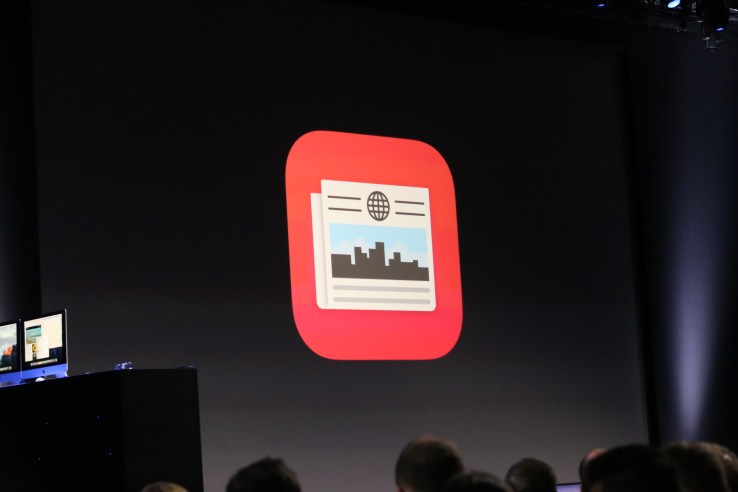
Today at its WWDC keynote, Apple announced ‘News,’ an application for iOS that combines news content from a number of sources and an interface that will be familiar to any Flipboard user.
News can be summarized as Flipboard with search, though I doubt that either company would be too enthused by the description. Apple’s Susan Prescott walked the audience through the app, explaining that it asks your interests to “get a sense of what you like.” The result is a personalized content feed.
Apple stressed the aesthetic of the app, noting its layout functions that help content be arranged in a pleasing fashion, and what the company called “rich typography.” The app has another key feature: Privacy. Apple said during its keynote that user data will not be shared with third parties. The idea of data privacy was a theme of Apple’s keynote, and sat well as a direct swipe at Google, a key rival.
News is another app that Apple will, presumably, ship on iOS devices, granting the hardware company larger buy-in to the average user’s device usage. It’s also an almost odd effort, given the plethora of already-built news-reading applications that exist for the iOS platform. iOS does not lack developer buy-in or application diversity.
A small trend to note: Apple and Microsoft are building more ‘basic’ apps for their own platforms. Given that both companies are also focused on either growing, or burnishing their developer networks, it almost feels counterintuitive — why compete with what you are trying to grow? But if a company decides that an experience is core enough to the use of their operating system, it can either build it, buy it, or push a third-party application.
More on News when we get our hands on it, but for now, Apple just threw cold water onto the venture capital side of the news-aggregator business.

Comments
Post a Comment